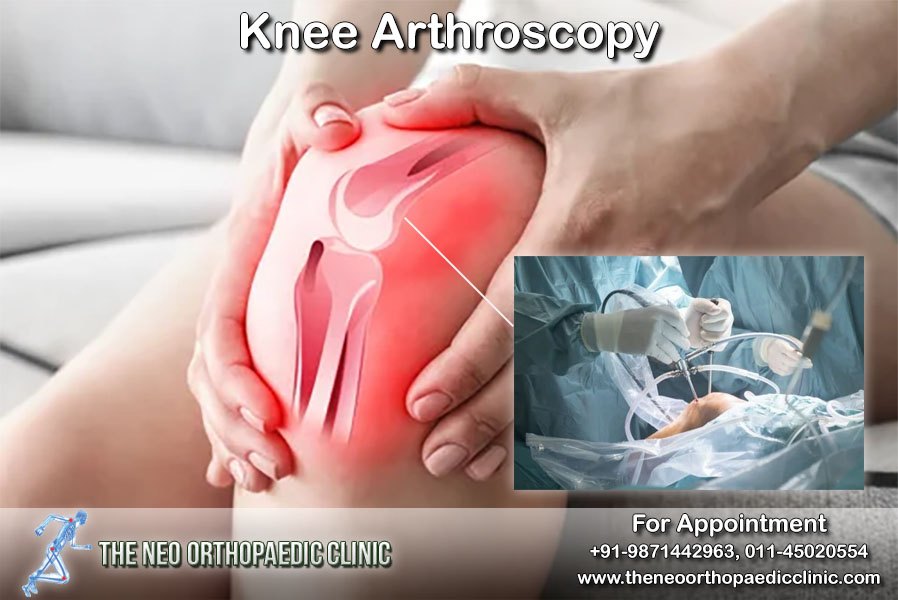Thanks to knee arthroscopy, the orthopaedic surgeon in Delhi is able to see the joint completely while operating. Find out more below.
Knee arthroscopy in Delhi is a surgical procedure used in traumatology and orthopaedic surgery. This technique facilitates diagnosis and treats many problems and diseases located inside the joint.
In different part of world, it has been commonly used since the 1970s. For this reason, despite being carried out for years, it is still considered as a new technique in continuous advancement and expansion.
Keep in mind that, despite being a much less invasive method than others, knee arthroscopy in Delhi is a surgical procedure. For this reason, only surgeons specializing in traumatology and surgery should perform it.
The image it offers is collected thanks to a camera and only a minimal incision that barely leaves a scar is necessary. It is a non-invasive method that allows to reduce hospital admission times. In most cases, patients are discharged on the same day, facilitating recovery, explains the orthopaedic doctor in Delhi.
Indications of knee arthroscopy
This technique allows to visualize the inside of the knee in a minimally invasive way.
There are several problems or injuries in which this useful technique is used. Diseases of various types and injuries can damage different parts of the joint such as:
- bone.
- cartilage.
- Meniscus.
- tendons.
- muscles.
- ligaments.
Ligament injury
Cruciate ligament injury is one of the injuries that require knee arthroscopy in Dwarka for accurate diagnosis. The injury can occur in both the anterior and posterior ligaments.
The anterior cruciate ligament is the isolated ligament with an important stability function. The name is because it crosses with another ligament called the posterior cruciate ligament, which has an antero-posterior and lateral half direction.
This injury is the most common intraarticular problem and is usually caused by lateral leg twisting. In addition, if associated with internal meniscus rupture and internal lateral ligament, it is called triad. It is very common in footballers, says the sports injury specialist in west Delhi.
In a young person, moderately active, with discomfort and feeling of failure, the ligament must be reconstructed. This is because in the medium term it usually causes early degeneration of the joint and predisposes to meniscus injury, explains the orthopaedic in Delhi.
Meniscal injury
Meniscus injuries are often one of the main indications for using this technique, both in diagnosis and repair.
Meniscus is a cartilage that has important functions within the knee such as:
- cushioning.
- Cartilage protection.
- Improve joint function.
Sometimes, when a clean, recent and peripheral injury occurs, the meniscus can be sutured. There are two types of suture: all with a knee arthroscopy, or mixed, less frequent.
With a knee arthroscopy in Dwarka, meniscus transplants from tissue donors can also be performed.
Wear or degeneration of joint cartilage.
Cartilage is a pearly layer of low friction that coats the joint part of the femur, tibia and kneecap. The most common cause of cartilage lesions is osteoarthritis.
However, more triggers are in this situation. It can also be caused by osteochondritis desiccant, infections, metabolic problems or trauma, among others. Depending on the patient’s age, activity and expectations, there are several surgical techniques for repairing or reconstructing cartilage.
Benefits of knee arthroscopy in Delhi
Thanks to this technique the hospitalization time is reduced, facilitating a prompt recovery of the patient.
The advantage of this technique over other common surgical procedures is that the orthopaedic surgeon in Delhi is able to see the joint completely. It does this thanks to a small instrument called an arthroscope.
Another advantage of knee arthroscopy in Delhi is that only very small incisions are needed. Thus, usually this technique leads to a reduction of the time of stay in the hospital and a rapid recovery.
Many patients who have knee arthroscopy can leave the medical centre the same day they are operated on. In turn, being small incisions, a better aesthetic result is achieved, especially in exposed areas of the body.
But don’t forget that patients undergoing knee arthroscopy can do so due to different injuries or pathologies. Therefore, the previous particular conditions will condition the stay in the hospital and the total recovery time. In short, not all patients will respond equally to this surgery, says the orthopaedic in Delhi.


